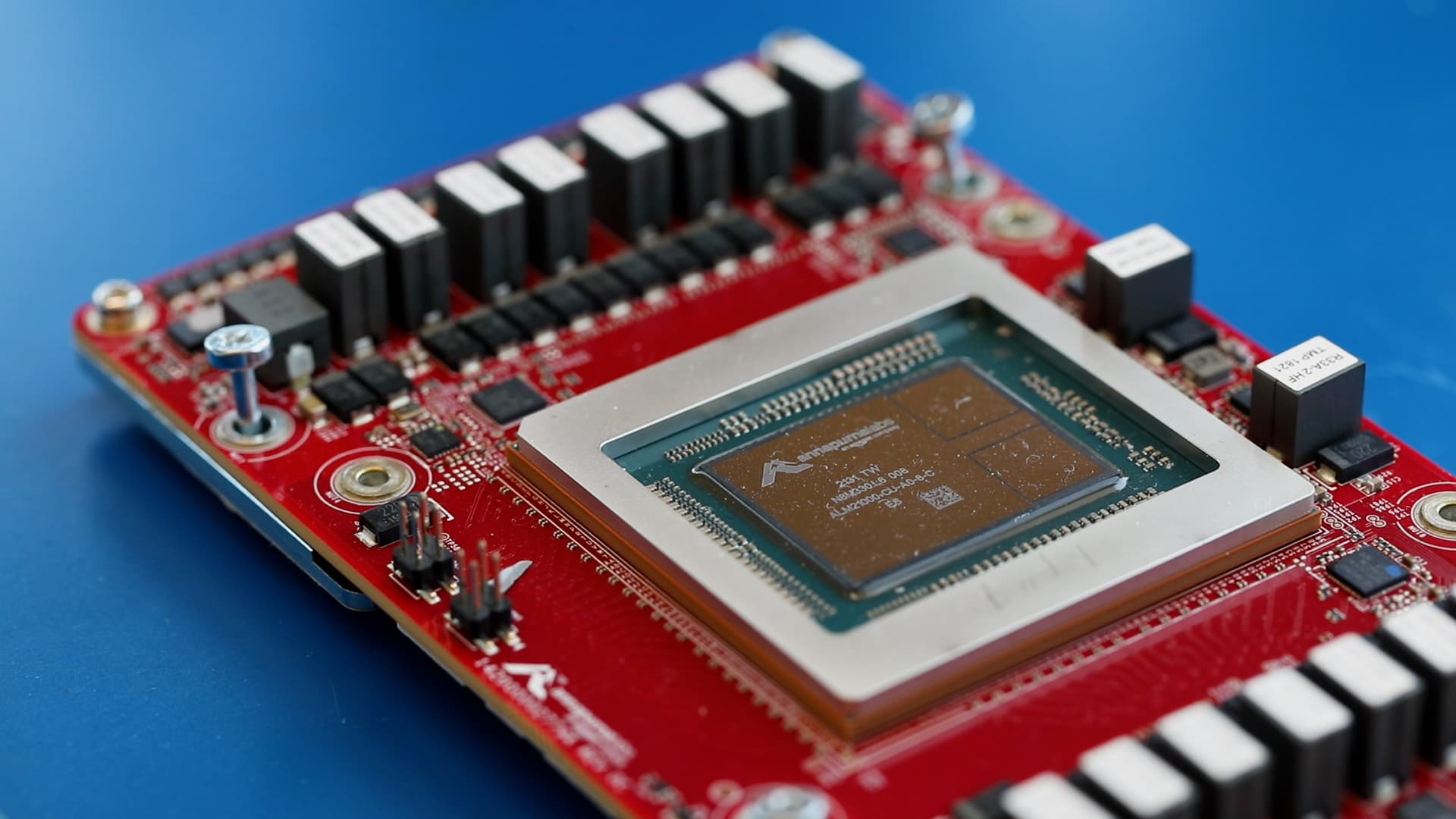Inside an unmarked office building in Austin, Texas, a team of Amazon employees is hard at work designing two cutting-edge microchips, Inferentia and Trainium, specifically tailored for training and accelerating generative AI. These custom chips offer a viable alternative to Nvidia GPUs, which have become increasingly difficult and expensive to obtain, giving AWS customers a more accessible option for training their large language models.
In a recent interview with CNBC, Amazon Web Services CEO Adam Selipsky expressed the company’s commitment to meeting the growing demand for generative AI chips, stating, “The entire world would like more chips for doing generative AI, whether that’s GPUs or whether that’s Amazon’s own chips that we’re designing. I think that we’re in a better position than anybody else on Earth to supply the capacity that our customers collectively are going to want.”
However, while Amazon is determined to establish its presence in the generative AI space, other players in the tech industry have moved quickly to gain an advantage. For example, when OpenAI released its highly successful ChatGPT, Microsoft garnered attention by hosting the viral chatbot and investing a reported $13 billion in OpenAI. Microsoft promptly integrated generative AI models into its own products and even incorporated them into Bing. Similarly, Google launched its own large language model, Bard, and invested $300 million in OpenAI competitor Anthropic.
It wasn’t until April that Amazon announced its own line of large language models, called Titan, along with a service called Bedrock to assist developers in harnessing the power of generative AI. Chirag Dekate, VP analyst at Gartner, observes that Amazon, known for creating rather than chasing markets, now finds itself on the back foot and is working hard to catch up.
Amazon’s custom silicon has the potential to give the company an edge in the long run. Dekate emphasizes the significance of the technical capabilities Amazon brings to the table, stating, “I think the true differentiation is the technical capabilities that they’re bringing to bear. Because guess what? Microsoft does not have Trainium or Inferentia.”
Amazon’s journey in custom chip production began in 2013 with a specialized piece of hardware called Nitro, which has since become the highest-volume AWS chip. Today, every AWS server houses at least one Nitro chip, with a total of over 20 million in use.
In addition to Nitro, Amazon made strategic moves in the chip industry. The company acquired Israeli chip startup Annapurna Labs in 2015 and launched its Arm-based server chip, Graviton, in 2018 to compete with major players like AMD and Intel.
The behind-the-scenes tour of Amazon’s chip lab in Austin showcased the development and testing of Trainium and Inferentia. Matt Wood, VP of product at AWS, explained the function of both chips, highlighting Trainium’s 50% improvement in price performance compared to other methods of training machine learning models on AWS. Trainium, released in 2021, complements Inferentia, which debuted in 2019 and is now on its second generation. Inferentia offers low-cost, high-throughput, low-latency machine-learning inference, making it ideal for processing prompt-driven responses in generative AI models.
While Nvidia’s GPUs currently reign supreme for training models, Amazon’s custom chips have the potential to disrupt the market. However, Stacy Rasgon, senior analyst at Bernstein Research, notes that Nvidia has a significant advantage due to its well-established software ecosystem built over the past 15 years, making it the current frontrunner in the AI domain.
Nonetheless, Amazon’s dominant position in the cloud computing market, with 40% market share in 2022, sets it apart from competitors. By leveraging its existing customer base and offering familiar tools and services, Amazon can provide a seamless transition for users looking to adopt generative AI applications. Mai-Lan Tomsen Bukovec, VP of technology at AWS, emphasizes the company’s focus on enabling customers to tap into the power of generative AI quickly and efficiently.
In terms of generative AI offerings, AWS provides a host of tools and services. AWS HealthScribe, for example, assists doctors in drafting patient visit summaries using generative AI. SageMaker serves as a machine learning hub, offering algorithms and models for developers. CodeWhisperer, a coding companion, has demonstrated a 57% increase in developer productivity. Additionally, AWS recently announced a $100 million generative AI innovation center, aiming to collaborate with customers and provide personalized support.
Despite focusing on tools rather than building a direct competitor to ChatGPT, an internal email leak revealed that Amazon CEO Andy Jassy is involved in a central team dedicated to developing large language models. Jassy noted that a significant amount of AWS business is now driven by AI, with more than 20 machine learning services on offer, catering to a diverse range of customers.
However, the rapid growth of AI has raised concerns about data security and proprietary information. Many companies have banned the use of ChatGPT due to these concerns, prompting AWS and other industry players to address these issues and provide secure solutions for training data.
In conclusion, while Amazon may be playing catch-up in the generative AI market, its established presence in cloud computing, coupled with its technical capabilities and growing portfolio of AI tools, positions it as a strong contender. With the dedicated efforts of its chip lab and the potential of Trainium and Inferentia, Amazon has the ability to carve out its own space in the world of generative AI.
Denial of responsibility! VigourTimes is an automatic aggregator of Global media. In each content, the hyperlink to the primary source is specified. All trademarks belong to their rightful owners, and all materials to their authors. For any complaint, please reach us at – [email protected]. We will take necessary action within 24 hours.


